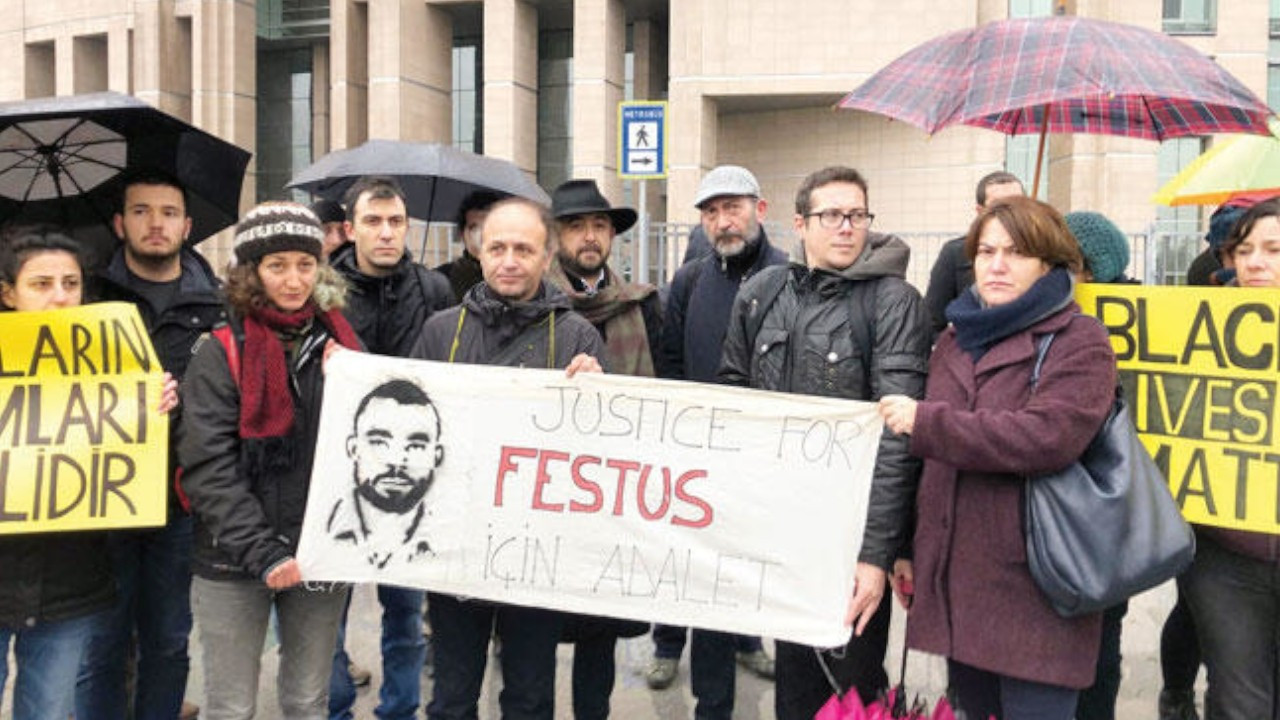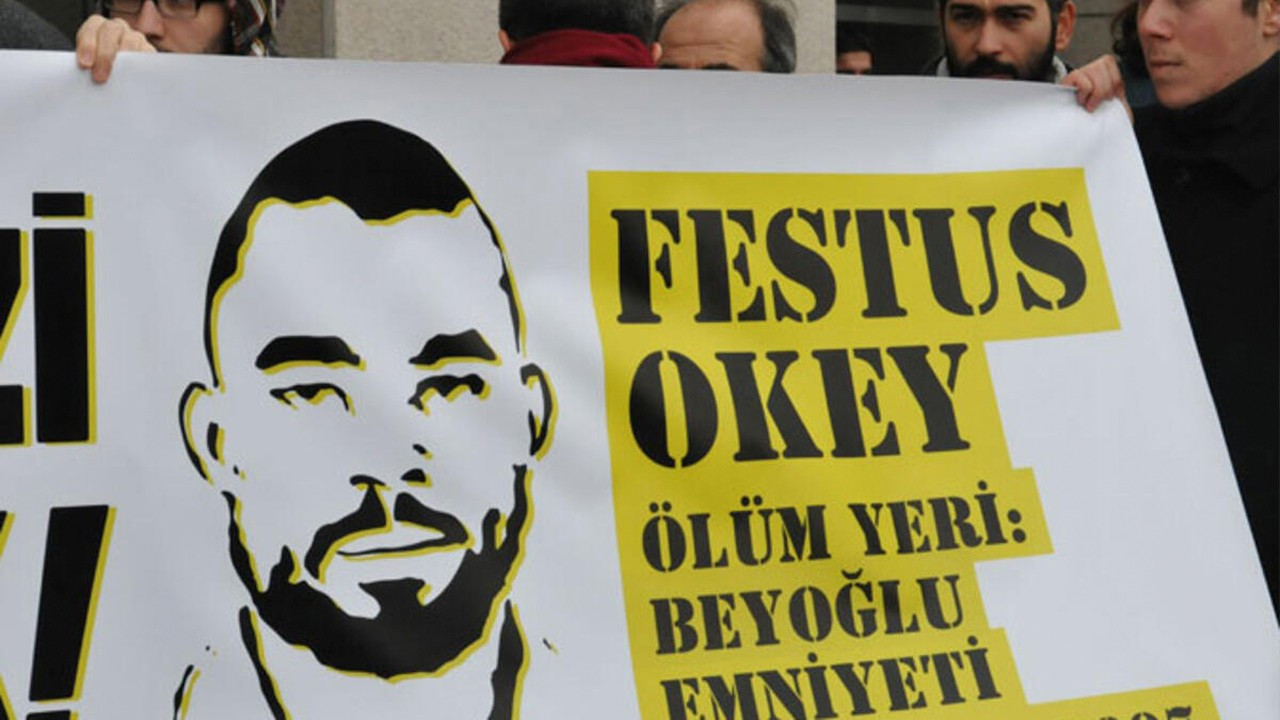Turkish court sentences police officer to 16 years in prison over 2007 murder of Nigerian migrant
An Istanbul court on March 17 sentenced police officer Cengiz Yıldız to 16 years and eight months in prison for murdering Nigerian Festus Okey in 2007. Lawyers demand that not only Yıldız but also other police officers who were on duty at the Beyoğlu Police Station at the time of Okey's death stand trial as there was also negligence on their part.
Duvar English
An Istanbul court on March 17 sentenced police officer Cengiz Yıldız to 16 years and eight months in prison for murdering Nigerian immigrant Festus Okey at the Beyoğlu Police Station in 2007, online news outlet Diken reported.
The Istanbul 21st Heavy Penal Court initially handed down life imprisonment for Yıldız, but later reduced it to 16 years in prison taking into account the suspect's “future.”
In 2011, Yıldız was sentenced to 4 years and 20 days imprisonment for killing Okey. The decision was later reversed by the Court of Cassation on the grounds that Yıldız should stand trial for murder with eventual intent.
A second trial for Okey's case started in 2018, this time with his mother and brother's involvement. The family has argued that Okey’s death is related to racial discrimination and that the investigation has not been carried out effectively.
Lawyers demand that not only Yıldız but also other police officers who were on duty at the Beyoğlu Police Station at the time of Okey's death stand trial as there was also negligence on their part.
Lawyer Olguner Olgun said during the hearing on March 17 that charges should be also brought against other police officers “for creating negligence in this process such as losing t-shirt and destroying evidence.”
“Secondly, we have demanded that the incident occurred with a discriminatory motive,” Olgun told the court.
The t-shirt Okey was wearing at the time of his murder was lost in the hospital. It was an important piece of evidence for determining from what distance Okey was shot. Without it, the initial case lasted for four years.
Turkey's Constitutional Court in January ruled that Okey's right to life had been violated and ordered the state to pay his family 80,000 liras in compensation.
The top court however did not accept the family's argument that an effective investigation had not been conducted with regards to the role of public officials in the murder, on the grounds that “not all domestic remedies have been exhausted.”
The top court also dismissed the claims of “racial discrimination” against Okey, saying there was “no explicit evidence” suggesting this.

 Family of murdered Nigerian migrant demand effective investigation in lingering caseHuman Rights
Family of murdered Nigerian migrant demand effective investigation in lingering caseHuman Rights Nigerian man's right to life violated in murder by Turkish police, top court rulesHuman Rights
Nigerian man's right to life violated in murder by Turkish police, top court rulesHuman Rights